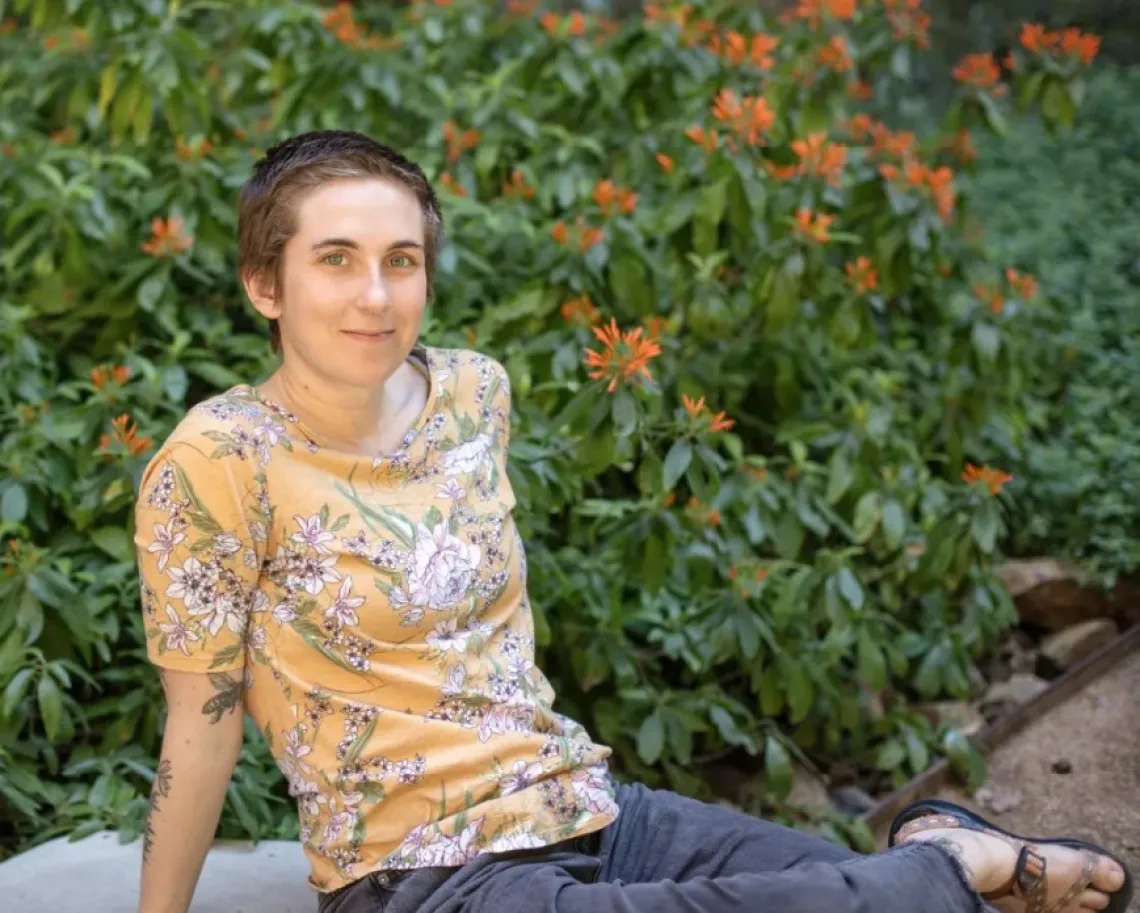BRIDGES program connects student's love for the outdoors and research in evolutionary ecology
Research Development Services, RII

PhD student Savannah Fuqua was part of the Fall 2021 inaugural BRIDGES cohort.
— Tucson, AZ —
Savannah Fuqua says they’re “from about as far into the middle of nowhere in west Tennessee as you can get.” A fifth-generation resident of rural Milan, Fuqua spent early years in a house so secluded they couldn’t see the neighbors. When the family moved into town, it was so Fuqua’s parents could be closer to work—Fuqua’s dad worked for the Tennessee Wildlife Resources Agency, and mom taught English at Milan Middle School.
Fuqua says their upbringing — “going out and playing with bugs and things like that. What else do you do when you live in the woods?” — contributed to a lifelong interest in the outdoors.
After college, Fuqua began an internship with the National Park Service at Point Reyes National Seashore, focusing on habitat restoration: removing invasive plants and monitoring rare plant species. Fuqua also initiated a research project on the decomposition rates of plant material after herbicide treatments, which brought them into contact with several U of A researchers.
Fuqua’s interest in mutualistic interactions, particularly between species and microbial communities, led them to apply to graduate programs in Arizona and California. While deciding between U of A and San Diego State, Fuqua received an unexpected call from U of A Professor of Plant Sciences Betsy Arnold. “She told me, ‘Hey, you should apply for this ecosystem genomics training grant. It sounds right up your alley.’ I’d never heard of BRIDGES [Building Resources for InterDisciplinary Training in Genomic and Ecosystem Sciences], but I looked into it and agreed with her.”
Fuqua was one of seven students comprising the first BRIDGES cohort in Fall 2021. The NSF-funded program provides trainees with professional instruction, research experiences, a certificate and minor, and mentorship opportunities.
For the required summer BRIDGES project, Fuqua returned to the West Coast dunes to study invasive plants and their interactions with microbial communities in the soil. BRIDGES, they say, inspired thinking across different scales in research, from soil chemistry to plant community composition. “BRIDGES taught me to value interdisciplinarity, which turns out to be very helpful, especially in ecology. You have to use a lot of different methods and tools to get anywhere in the science.”
Now a fourth-year PhD student, Fuqua says the connections made in BRIDGES continue to be the primary way of interacting with people outside the lab and department. “BRIDGES brings together people from all these different departments and programs,” they said. “I think that’s the best part of it both professionally and socially.”
Fuqua also appreciates how BRIDGES set the funding wheels in motion; in 2023, they applied for and received the NSF Graduate Research Fellowship Program (GRFP).

